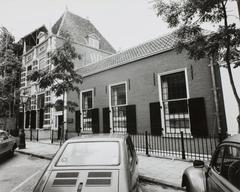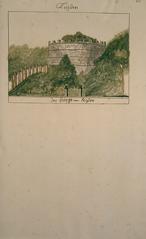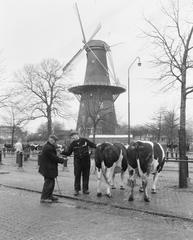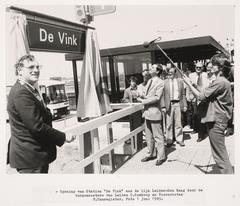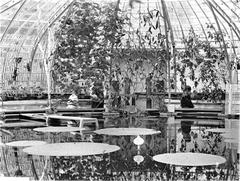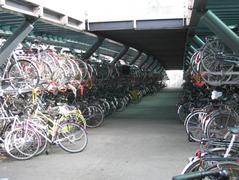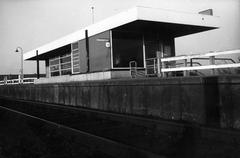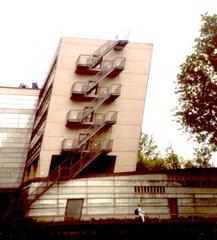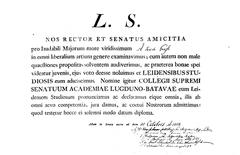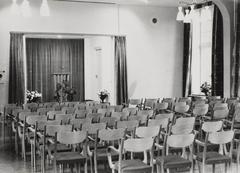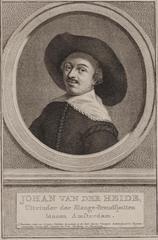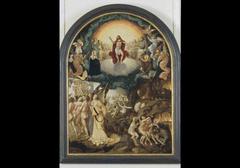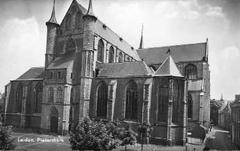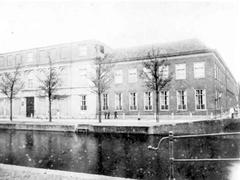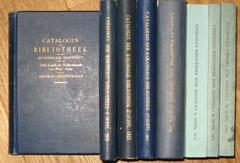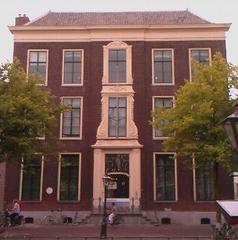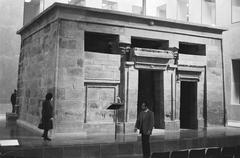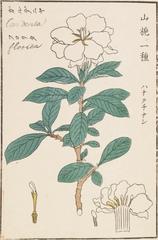
Visiting The Netherlands Institute for the Near East (NINO) in Leiden: Comprehensive Guide to Tickets, Hours, and Attractions
Date: 04/07/2025
Introduction: Discovering the Netherlands Institute for the Near East (NINO)
Located in the heart of Leiden, the Netherlands Institute for the Near East (NINO) is a renowned center for research and scholarship dedicated to the ancient civilizations of the Near East, including Egypt, Mesopotamia, and neighboring regions. Established in 1939 and affiliated with Leiden University, NINO has become an indispensable resource for academics, students, and history enthusiasts. Its collections—most notably the De Liagre Böhl Collection of cuneiform tablets and the Frank Scholten photographic archive—offer unique perspectives on ancient societies and languages. While NINO primarily serves as a research institute, many of its treasures are accessible to the public through collaborations with local museums, especially the nearby National Museum of Antiquities.
This guide provides essential information on visiting NINO: opening hours, ticketing, accessibility, guided tours, collections highlights, and practical travel tips. Whether you are an academic visitor or a cultural traveler, this resource will help you make the most of your time at NINO and in historic Leiden. For the latest updates and planning tools, consult the official NINO website.
Table of Contents
- Introduction
- History and Cultural Significance of NINO
- Highlights of NINO’s Collections
- Visitor Information
- Exploring Leiden: Nearby Attractions
- Practical Tips for Visitors
- Frequently Asked Questions (FAQ)
- Summary and Recommendations
- References
History and Cultural Significance of NINO
Founded in 1939, NINO has grown into a leading institute for Near Eastern studies in Europe. As part of Leiden University’s Faculty of Humanities and the Leiden Institute for Area Studies (LIAS), it has fostered significant partnerships with the National Museum of Antiquities and Leiden University Libraries. These collaborations ensure the preservation and public display of priceless artifacts, as well as the advancement of research into the ancient Near East’s history, languages, and cultures.
NINO’s work extends beyond research: it plays an active role in Leiden’s academic life, regularly organizing lectures, international conferences, and public events that invite both specialists and general audiences to engage with the ancient world.
Highlights of NINO’s Collections
De Liagre Böhl Collection
The De Liagre Böhl Collection is the largest collection of cuneiform tablets and cylinder seals in the Netherlands. These artifacts are fundamental for the study of ancient Mesopotamia and Assyriology. Many of the tablets are digitized and available through the Cuneiform Digital Library Initiative (CDLI), making them accessible to a global audience.
Frank Scholten Photographic Archive
This remarkable archive contains approximately 20,000 photographs taken by Frank Scholten in 1920s Palestine. The collection offers invaluable visual documentation of historical sites, landscapes, and monuments, contributing to both academic research and public exhibitions.
Additional Resources
NINO’s library is a critical resource for Egyptology, Near Eastern archaeology, and related disciplines, with over 50,000 titles in multiple languages. Visitors can also find archaeological reports, linguistic studies, and rare manuscripts.
Visitor Information
Visiting Hours & Admission
- Standard Opening Hours: Monday to Friday, 9:00 AM – 5:00 PM
- Admission: Free for academic visitors (students, researchers, and faculty). The general public may require prior arrangement; it is advisable to contact NINO in advance.
- Special Closures: Hours may vary during university holidays or special events. Always check the latest updates on the NINO website.
Guided Tours & Events
- Guided Tours: Available by advance request and during special open days or events. Tours typically cover the institute’s collections, library facilities, and research activities.
- Public Events: NINO hosts lectures, workshops, and conferences throughout the year. Many are open to the public, but some require registration or tickets. Details are listed on the NINO events page.
Accessibility
NINO is housed in the modern Herta Mohr building and is fully accessible for visitors with disabilities. The building features ramps, elevators, and accessible restrooms. For specific needs, contact NINO staff prior to your visit.
Location & Getting There
- Address: Witte Singel 27a, Herta Mohr building, 2311 BG Leiden, Netherlands
- Public Transport: Leiden Central Station is a 15–20 minute walk away, or accessible by local bus or bicycle.
- By Car: Limited parking is available; public transport is recommended.
Exploring Leiden: Nearby Attractions
Combine your NINO visit with other highlights of Leiden:
- National Museum of Antiquities (Rijksmuseum van Oudheden): Home to permanent exhibitions of NINO’s artifacts and extensive ancient collections.
- Hortus Botanicus: The oldest botanical garden in the Netherlands.
- Leiden’s Historic Center: Picturesque canals, historic university buildings, and vibrant markets.
- Other Museums: Including Museum De Lakenhal and Naturalis Biodiversity Center.
For more recommendations, see this list of Leiden historical sites.
Practical Tips for Visitors
- Plan Ahead: Contact NINO in advance for access if you are not affiliated with a university or research institution.
- Check for Events: Consult the NINO website for current event listings and registration details.
- Facilities: Free Wi-Fi is available. Restrooms and cloakroom facilities are on site.
- Dining: There is no café at NINO, but Leiden’s city center offers a wide variety of restaurants and cafés within walking distance.
- Photography: Photography in the library and of special collections is generally prohibited unless authorized.
Frequently Asked Questions (FAQ)
Q: What are NINO’s visiting hours?
A: Monday to Friday, 9:00 AM to 5:00 PM. Confirm on the NINO website for any updates.
Q: Is there an admission fee?
A: No, access is free for academic visitors. The general public should contact NINO for special access arrangements.
Q: Are guided tours available?
A: Yes, but tours must be booked in advance or during official open events.
Q: Is the building accessible to visitors with disabilities?
A: Yes, NINO’s facilities are fully accessible.
Q: How do I get to NINO from Leiden Central Station?
A: Walk (15–20 minutes), take a local bus, or rent a bicycle.
Q: Can I access the collections online?
A: Many resources are digitized. Visit the NINO website and the Cuneiform Digital Library Initiative for online access.
Summary and Recommendations
NINO is an essential destination for anyone interested in the archaeology, history, and cultures of the ancient Near East. Its world-class collections, scholarly library, and dynamic programming make it a hub for academic research and cultural exploration. While general public access is limited, partnerships with the National Museum of Antiquities ensure that NINO’s treasures are available to a broader audience.
Travel Tips:
- Always check the NINO official website for the latest visiting hours and access policies.
- Explore nearby attractions to make the most of your time in Leiden.
- Take advantage of digital resources and public events for a deeper understanding of the ancient world.
For further information and planning, refer to the resources listed below.
References
- Visiting the Netherlands Institute for the Near East (NINO): History, Collections & Visitor Information, 2025, NINO Leiden (NINO Organisation and Structure)
- Visiting the Netherlands Institute for the Near East (NINO): Hours, Tickets, and Historical Insights in Leiden, 2025, The Crazy Tourist (15 Best Things to Do in Leiden)
- Visiting the Netherlands Institute for the Near East (NINO) in Leiden: Collections, Hours, and Visitor Information, 2025, NINO Leiden (NINO Official Site)
- NINO Visiting Hours, Admission, and Practical Guide for Visitors in Leiden, 2025, NINO Leiden (NINO Main Page)
Enhance your visit by downloading the Audiala app for interactive maps, event updates, and cultural insights about Leiden and the Netherlands.


